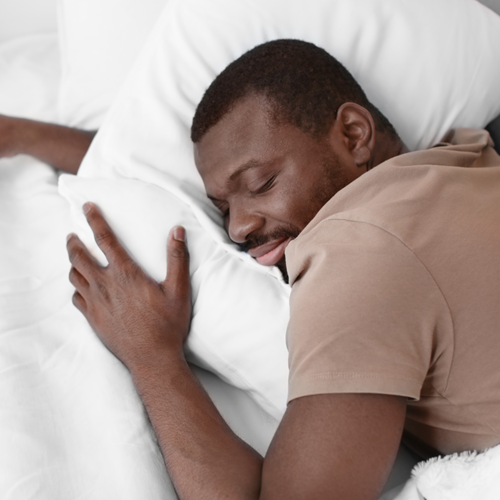News
Sleep for your Mental Health
When is the last time you got a good night’s sleep? Have you noticed that you’re feeling run down or in a bad mood lately? Odds are it relates to the amount of sleep you’re getting on a daily basis!
Many individuals don’t realize just how important sleep is to your mental health. According to sleepfoundation.org, sleep is closely connected to mental and emotional health and has demonstrated links to depression, anxiety, bipolar disorder, and other conditions.

Adults should be getting at least 7 hours of sleep each night. Sufficient sleep helps the brain to process emotional information. While sleeping, the brain works to evaluate and remember thoughts and memories, so lack of sleep can be harmful to the storage of positive emotional memories. This explains why you may wake up some mornings feeling grumpy if you didn’t get a good night’s sleep!
One of the biggest sleeping problems is poor sleep hygiene. Strong sleep hygiene means having a bedroom environment and daily routines that promote consistent, uninterrupted sleep. Follow the tips below to improve your sleep hygiene:
- Have a scheduled wake-up time: Whether it’s during the week or the weekend, try to wake up at the same time each day to keep a rhythm of consistent sleep.
- Make small adjustments: If you want to shift your sleep times, take small steps with 1-2 hour time adjustments. Making big changes at one time can throw your sleep schedule through a loop.
- Don’t take too many naps: Naps can be beneficial to help you regain energy during the day, but overdoing it can impact your sleep at night. If you do nap, try to keep it short and during the early afternoon.
- Dim the lights: Do your best to keep away from bright lights, which stops the production of melatonin, a hormone that the body creates to facilitate sleep.
- Unplug from your electronics: Disconnect from all devices 30-60 minutes before you go to sleep. Electronics cause mental stimulation that is hard to shut off and also generate blue light, which may decrease melatonin production.
Here are some additional healthy habits you can establish to improve your sleep and overall wellbeing:
- Get daylight exposure
- Quit smoking
- Be physically active
- Reduce alcohol consumption
- Don’t eat late at night
Remember, everyone is different so the best habits may vary based on the individual. Find more information on sleep hygiene here and additional mental health resources at healthyyork.org/resources/individuals/mental-behavioral-health/.
